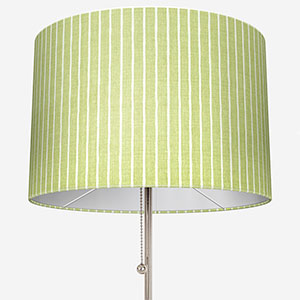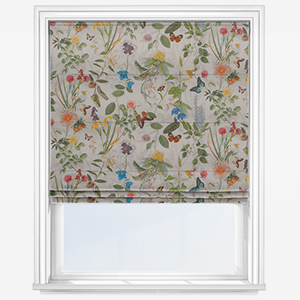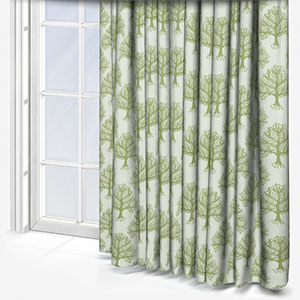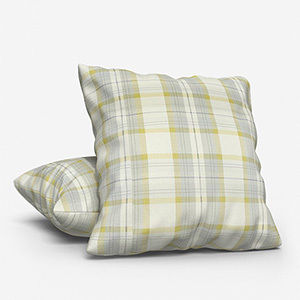
Looking To The Future: Traditional Style
Traditional style is a benchmark for charm, elegance, and sophistication. With heavy, dark, carved wooden fixtures, sturdy furniture made to stand the test of time and textured fabrics that are pleasant to both the eye and touch, you don’t have to own a castle to make the most of this sophisticated style.
Traditional style in a nutshell
Tradition means many things to myriad people and cultures but when it comes to this school of design, we’re talking about classic European décor. The aim here isn’t to cram a mini Versailles or Buckingham Palace into your home with ginormous golden frames and dainty chairs no one dare sit in, it’s to bring elements of shabby English cottages and Victorian hunting lodges into the 21st century.
The goal is to avoid pretentious grandiosity. Our objective should be the introduction of elegance through delicate shapes, warming natural colours and the statement that style comes from small details working in harmony, not crass and unrefined items that bludgeon the beholder into submission.
Think less Louis XVI in brocade and more a tweed-contained Stephen Fry.
So enough of the theory, how can you introduce traditional style into your home?
Colour
As in most design schools, colour is an integral facet of traditional style. Here we’re not going for glitter, sparkle and vibrancy, we’re looking for soft, muted colours with the occasional pop of rich, dark primary colours.
Warm natural tones including pales greys, off whites and soft shades of browns are always a good place to start. Antique wooden furniture in a fine walnut or chestnut, a contrasting cream textured Roman blind in a nearby window – or an aubergine cushion – will always help harmonize the overall effect.
As statement spot colours, dark reds, racing green and navy can equally work well in a traditional-inspired space, as long as they are deployed in moderation.
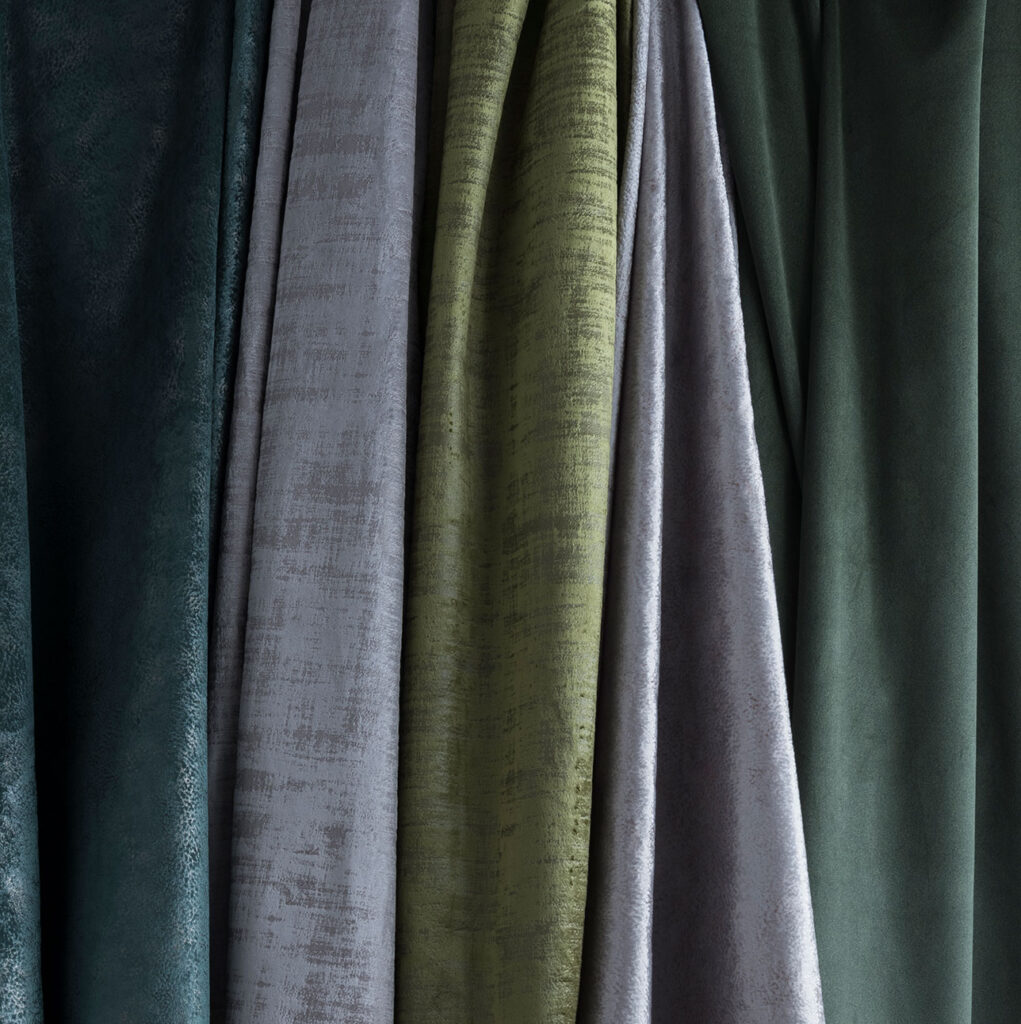
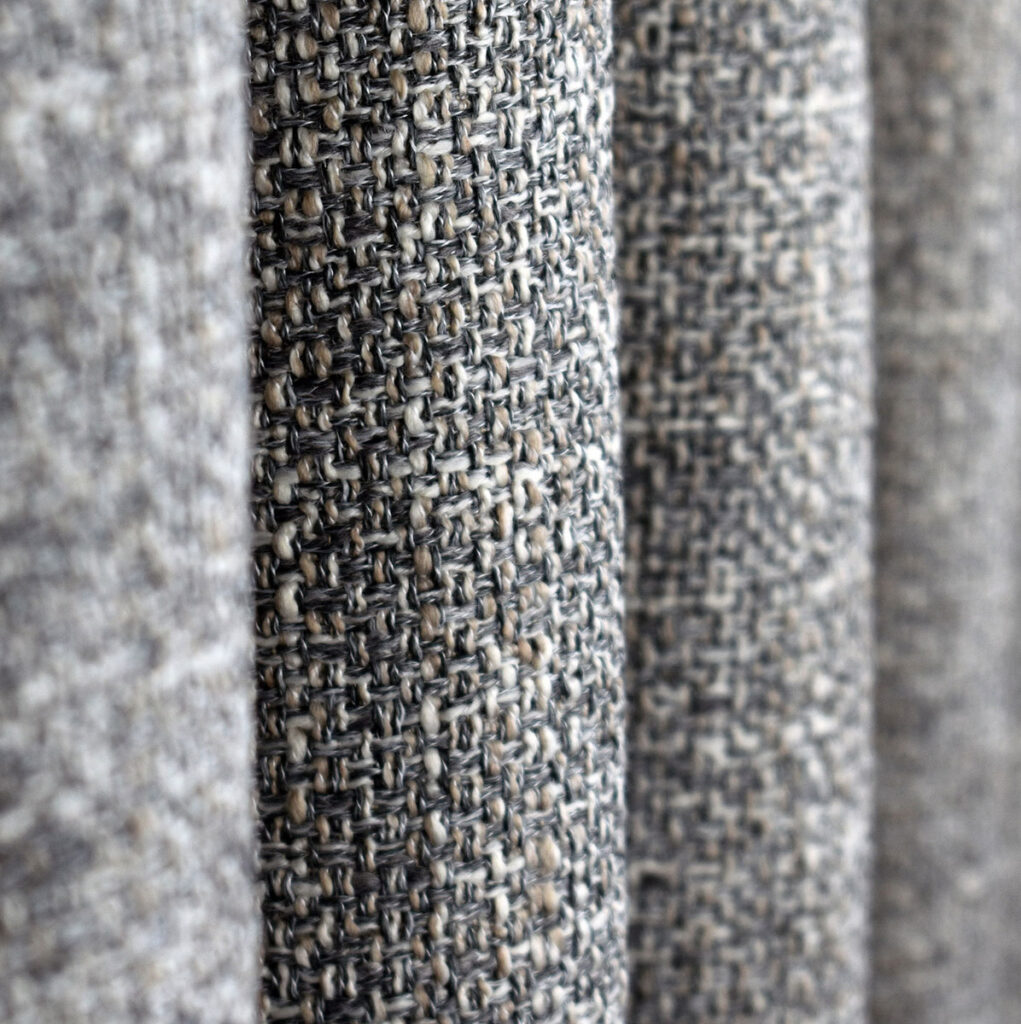
Texture
Texture is an area you can really explore as part of a traditional décor. From sumptuous silks to woven wools and tough tweed; there are many great options to choose from.
A heavy woollen curtain, for example, with a thick weave to add an extra dimension to its aesthetic characteristics, would never look out of place in a traditional room. Neither would a soft silk lampshade, or even a well-placed velvet cushion.
Where the British gentry mastered the art of layering their clothes to meet the harsh outdoors, layering is another great way to develop your design.
For instance, a window may include a luxurious Roman blind within the window recess, but paired with long weighty curtains hanging from a dark wood pole coving the whole window, you’ll have the canvass to create a truly elegant layered window feature.
Patterns
Patterns on soft furnishings can help add additional small touches to contribute to your overall aesthetic.
Bold tartans with dark red or green make a great choice for cushions while lampshades will benefit from a natural tone featuring symbols of the outdoors – be it delicate flowers or powerful stags.
The art here is to justify a pattern as part of the quasi-historical theme. If a cushion features an inspirational quote written in glitter or sequins, it’s only going to detract from the overall effect. If a pattern has a sense of tradition and history to it – essentially anything pre-dating the 1960s – you’re probably on the right footing.
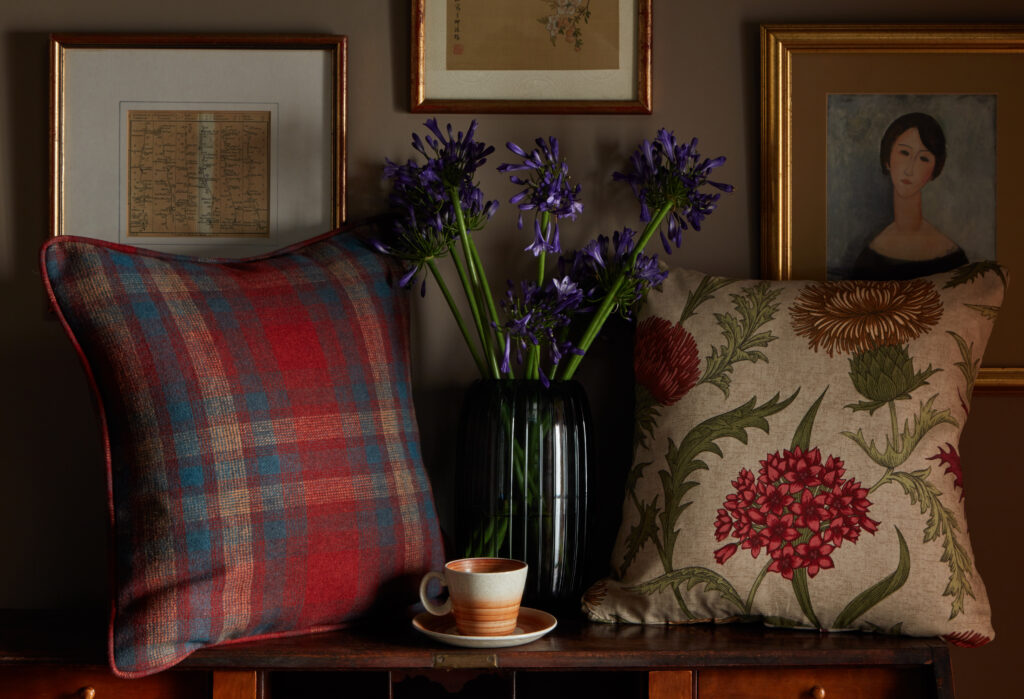
Be sure to take a look at our full range of traditional products to find inspiration for a traditional décor, and if you have any further questions, please don’t hesitate to get in touch with our team – we’re always happy to help.


